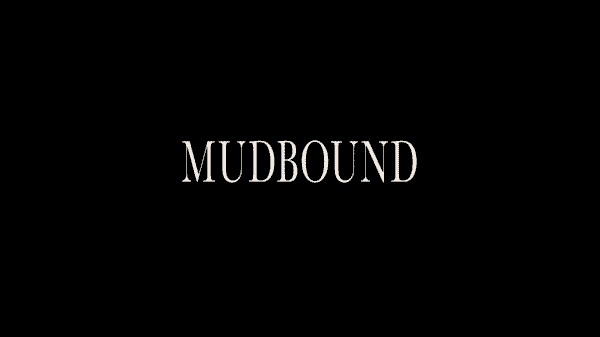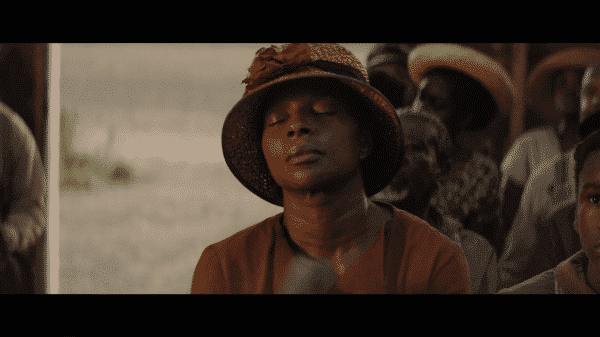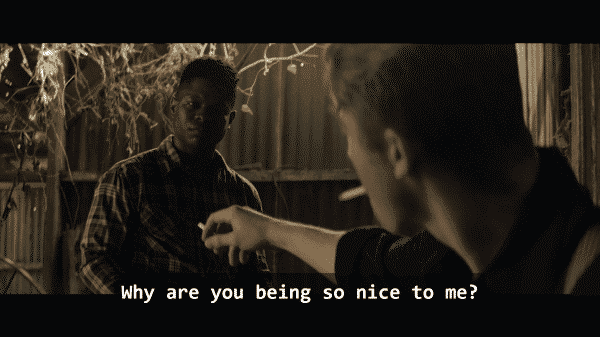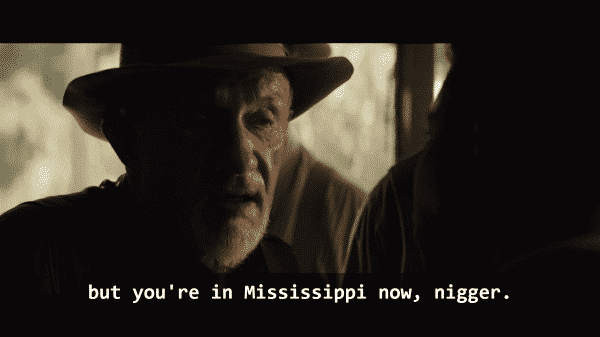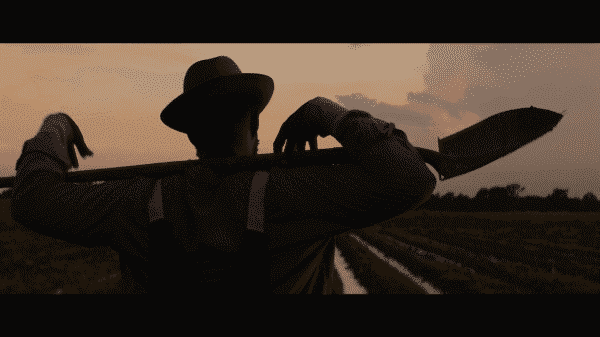Mudbound – Recap/ Review (with Spoilers)
Mudbound shows the muzzled pain that generations of Black folk have dealt with no matter what they say or do for and within the United States of America. Director(s) Dee Rees Writer(s) Dee Rees and Virgil Williams Noted Actors Hap Rob Morgan Florence Mary J. Blige Marlon Frankie Smith Lilly May Kennedy Derosin Ronsel Jason…

Spoiler Alert: This summary and review contains spoilers.
Additionally, some images and text may include affiliate links, meaning we may earn a commission or receive products if you make a purchase.
Mudbound shows the muzzled pain that generations of Black folk have dealt with no matter what they say or do for and within the United States of America.
| Director(s) | Dee Rees |
| Writer(s) | Dee Rees and Virgil Williams |
| Noted Actors | |
| Hap | Rob Morgan |
| Florence | Mary J. Blige |
| Marlon | Frankie Smith |
| Lilly May | Kennedy Derosin |
| Ronsel | Jason Mitchell |
| Pappy | Jonathan Banks |
| Laura | Carey Mulligan |
| Jamie | Garret Hedlund |
| Henry | Jason Clarke |
| Resl | Samantha Hoefer |
Trigger Warning(s): Violence Against Animals, Head Shots, Sound of Bones Snapping, Torture
Summary
The Jackson family, comprised of Hap and Florence, alongside their children Marlon, Lilly May, and Ronsel, are tenant farmers in the post-1927 world of the Mississippi. Like most families, they go to church, eat dinner together, and have hopes for the future. Hap would love to own a piece of land, even after what happened to his uncle Willie who died in the reconstruction era for doing so. As for Florence, she just wants a life unlike her mother. That is, being able to raise her children rather than raising some white woman’s children. Dreams both make progress towards until the McAllan’s buy the land they work on and World War II comes.
Both situations cause conflicts which change the Jackson family forever. The war takes their eldest Ronsel and while he flourishes in the military, experiencing a life without the racism of America, unfortunately, he returns. He suffers a PTSD beyond what he saw in combat but returns to the patriarch of the McAllan family, Pappy, lacing him with as many N****s as he can fit into a paragraph. Of which Pappy’s eldest boy, despite relying on the Jackson family to work on his farm, and Florence to work with his wife and daughters, says nothing in Ronsel’s defense. In fact, he sides with his father even after his father decides to bring the KKK into an issue he has with Ronsel.
But, of course, there while both Florence and Hap may make an unspoken blanket statement about white folks, there has to be those who aren’t under the covers. Laura, she goes against Henry when it comes to taking some of his money to make sure Hap gets a proper doctor, after breaking his leg. Then Henry’s brother Jamie, who Pappy can’t stand, shows no difference to Ronsel despite his race. Even before he went into the military. Something which he pays for.
And overall what you’ll experience over two hours is the hardship one Black family faced, no matter how hard they worked or how they tried to keep their head down, because of one man: Pappy, and how he raised his boys.
Question(s) Left Unanswered
- Is Dee Rees the first Black woman to create a major war film?
Highlights
Mary J. Blige
For those who are fans of Mary J. Blige’s music, the same pain you can hear, hopes for a better day even, in her music she brings to her performance. To the point that her transformation into Florence almost reminds me of Whoopi Goldberg’s transformation into Miss Celie in The Color Purple. The persona we know, the Queen of Hip-Hop/R&B is stripped down. The glamour is taken from her and all that is left is that quiet suffering which is at the heart of most of her big hits. To make a comparison to another diva, Blige presents herself in the same ilk as Mariah Carey was in Precious [External – Amazon link to watch this excellent movie].
A comparison I make for there are those, like Samuel L. Jackson in 2002, [External – Entertainment Weekly] who take issue with having their credibility be used to give musicians turned actors clout. Yet, Blige isn’t reliant on Carey Mulligan or even Rob Morgan to make her look good. On her own, she shows the pain of being a Black woman, in the south, during those times. Whether it is her recounting the life she never wanted of raising some other woman’s children while abandoning hers, dealing with a son off to war, or even her interactions with Laura.
I know it is too often people use the word “rare” to describe a depiction, making it seem the word has become overused, but I don’t think we have gotten characters like Florence enough. Whether you speak of times of slavery, reconstruction, Jim Crow, the civil rights movement, or even in modern times, you don’t see a movie of this scale focused on what a Black woman feels. It’s usually her husband, her brother, her friend, or her savior whose thoughts and feelings are explored and made valid.
So for Blige to open Florence up to us, let her story be told and not necessarily make it tear-inducing, but real, is applaudable.
Representation of Black Love and a Strong Black family
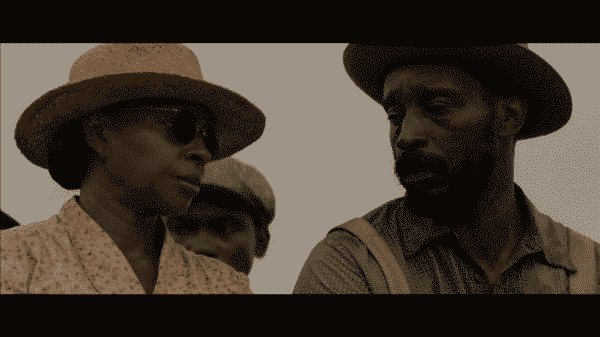
There was something really beautiful about the partnership and love between Hap and Florence. It isn’t clear if they are together for survival or not, but it is clear they are a team. They share dreams, when he is hurt she picks up the slack, and I don’t think you see them have one serious argument once. On top of that, the way their family chemistry is, it’s just so beautiful.
Lilly May talks about becoming a stenographer and despite her brother noting the racism of the times, Hap is quick to say she can be the first Black one. Ronsel, despite knowing what liberation feels like, returns home to his family, wants to stay by their side, and partly it is because of fear of the unknown I think. They have made things so comfortable, despite what little they have, it makes it difficult to just leave that. Well, until the KKK come around.
Religion and Gospel
It has always been strange to me how little religion plays into productions focused on Black people and Black culture. Though not a monolith, the almost utter avoidance almost seems to be out of fear that bad enough Black focused productions are considered a niche, but to add religion would diminish exposure even more. So with that not being in place here as we see Hap is deeply religious, has his family go to church, and we even see him and Florence trade Bible verses, was kind of refreshing. Especially the inclusion of spirituals. Really driving home the culture we were experiencing.
The Horrors of War & Thereafter
It’s interesting to see a person willingly sacrifice their life, their sanity, for a country which doesn’t care about their safety and sanity on its soil. It is quite amazing to see folks like Pappy, who didn’t have to fight in the war, look down and insult someone who just returned. Someone who now has PTSD for life, and the jitters, due to what happened. Who left a woman he loved behind because there is this thought in his mind that home is across the Atlantic.
All of the complications of returning to this Jason Mitchell gives us to show complex. White people of different origin treat him like a human being, celebrating him as he protected and fought for them. Yet, returning to white people at home and they’d spit on him before just letting him pass through the front door. Can you imagine?
I mean, let’s also factor he was raised around folks like Pappy and then experienced those like Resl. Though not dove into, imagine the culture shock involved in that? Especially when there is the occasional reminder of his fellow soldiers of what back home is like. Really pushing the idea of when Ronsel was restless, it wasn’t because he felt trapped by what his family could offer but the life that seemed imaginary but was once had.
Compare & Contrast
Though the Jacksons and McAllan’s naturally don’t speak for the cultures they represent, it was interesting to compare and contrast them. When it came to Laura and Henry, there was a world of difference between them and Hap and Florence. As noted, Hap and Florence were a team who didn’t need to yell or be underhanded when dealing with one another. Also, even if their relationship was more out of survival, if not goals of having a family over love, there was a partnership.
That is, in comparison to the McAllan’s in which Henry may have cared about Laura to a point, but there was no conversation in Henry’s decisions. As especially shown when Vera ever came around. Thus leading to Laura, like when she paid for Hap to see a proper doctor, there being underhanded gestures. Well, that alongside her interactions with Jamie.
Another thing I especially found interesting was how Henry and Jamie could both be raised by Pappy yet, arguably, neither are racist. Jamie is against it and Henry is sort of the modern form of racist. It isn’t that he considers his father’s way right but that doesn’t mean Black folk should be causing a stink either.
Also, there is how Laura treats the Jacksons vs. Henry. Now, for all intents and purposes, it seems both Laura and Henry come from similar backgrounds. It isn’t clear if Laura’s folks were racist, but I’m sure she had a certain amount of privilege which made it so she hadn’t had to have close relationships with local Black folk. So there comes the question of how and why Henry thought Hap and Florence owed him assistance, even when burying Pappy, yet the Jacksons should get nothing in return? Henry didn’t try to calm Pappy and his friend when Ronsel was just trying to exit through the front door and despite needing Hap to be at his best, he didn’t invest in making sure he got a good doctor – Laura did.
And I bring all this up for it really drives home the difference between those who want things to change and those who simply don’t wish to be inconvenienced or deal with something uncomfortable or unfamiliar. The difference between having people like Hap forced into code switching or Ronsel being cautious around Jamie to them being able to be themselves and enjoy another person’s company. Even help them purely out of the goodness of their heart vs. fear of petty retribution.
On The Fence
You Will Feel That Two Hour Time Length
Like many Netflix films which go beyond the usual hour and a half, there are times where you get this vibe this movie was not geared for online viewing. It was not made to originally be seen anywhere but within a theater. Especially by those who are more so general moviegoers than those who crave films which can be considered Oscar bait.
All of which isn’t to say this film is boring. More so it is one which asks for the type of commitment which can be hard to give when you have the option of opening a new tab, checking your phone, and etc. Especially since while the performances are good, including Mary J. Blige’s, none are so exceptional that they keep you glued to the production.
Overall: Positive (Worth Seeing)
Though this is sadly a Netflix release, meaning unless you are near a major metropolitan area you won’t see this in theaters, it still delivers. It creates a compelling narrative, which is worth an analytic eye, and brings about performances which do deserve attention. Now, there isn’t this breakout role, per se, for more so Blige is surprising simply because she walks in without expectation. However, each person plays their role in such a way it is undeniable the talents of Dee Rees and the curation of Ted Sarandos.
Watch: Here [External]

